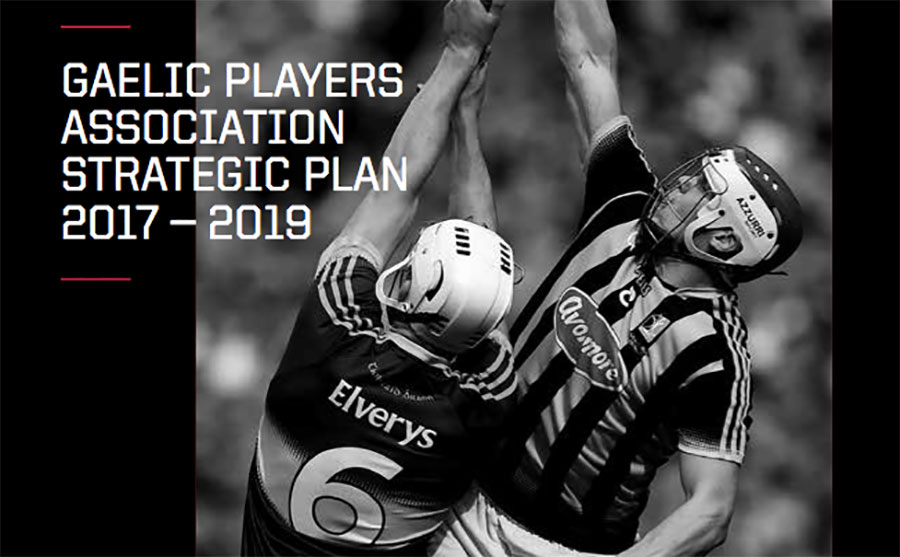The Gaelic Players Association (GPA) on Tuesday launched their new three year strategic plan for the organisation, focusing on enhancing player representation as well as investing in the personal development of intercounty players over the next three years.
There are six main themes as part of the new strategy –
- Playing a Better Game – changing our games for the better through a united players’ voice, for example, delivering a revamped master fixture list in hurling and football
- Working Together for Players – increasing GPA engagement with our players, and promoting a culture of strong advocates for our players
- Investing in Players – managing available funds effectively and transparently and enhancing our range of sustainable funding sources
- Leaving Players in a Better Place – investing in the talent that contributes to a vibrant player-led organisation e.g. an expanded range of leadership programmes for players that results in players and former players being engaged as community leaders at local, national and global level.
- More Than Just a Player – working with players to unlock their full potential and become a game changer in their own lives, promoting a balanced lifestyle where players can thrive on and off the field, focusing on newer members to prepare them for future challenges and opportunities
- Celebrating Players – raising awareness of players’ contribution to society
Speaking about the new strategy Dermot Earley said: “I was delighted to take on the role of Chief Executive of the GPA earlier this year as I felt it was a great opportunity to continue the GPA’s journey to improve the lives of our intercounty players. I set out immediately to take soundings from our players around the country with two purposes in mind, to hear firsthand about the things that are important to them, and to reiterate to them that the GPA exists solely to support them, both on and off the field of play. I also spoke with our many stakeholders around the country, including GAA officials, Government, Sports Ireland and many more, with a view to understanding their views about our organisation and how they can help our members.”
“The result of this period of consultation is a detailed strategy which I believe will forge a stronger bond with our members and will deliver on the things that matter to our players, from an improved master fixtures list, to enhanced player development programmes with greater participation, and greater public awareness of the contribution our players make to our wider society. Our members routinely give everything to our national games, and they deserve to be fully supported in their efforts during their playing careers and beyond. That is at the core of this strategy and, between now and 2019; we are determined to deliver on every aspect for the betterment of the intercounty player.”
Richie Hogan said “The support and programmes provided by the GPA have helped me enormously, not just in my playing career, but also my own personal development. I believe that the sooner the GPA can get the player to engage with them and be encouraged to participate in the programmes, from leadership to life skills to advice on how to manage their training with study or work, the easier it will be for that player to develop to their full potential, on and off the GAA field. I am delighted to see that part of the strategy announced today will see the GPA increase face to face engagement with intercounty players to make sure they know what is on offer to them and to see that they use these services as much as possible.”
Tom Parsons said “It’s very important that the GPA stays in touch with the player’s needs and listens to their concerns. That can only make this organisation stronger. Every player, even those at the very top of their game, faces challenges associated with playing the game at this level. Whether that is the challenge of combining playing with work or college, or dealing with the transition out of the intercounty game, the GPA can support each player at each step of their own personal experience. A lot is expected of intercounty players and it’s important that they feel the reassurance that someone has their back. That’s what this strategy is about and why it is so important.”



